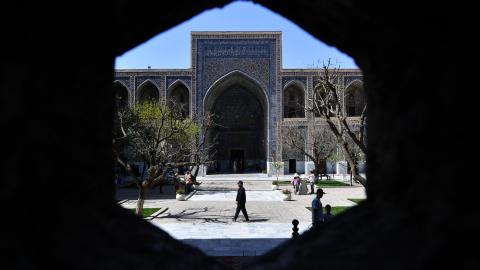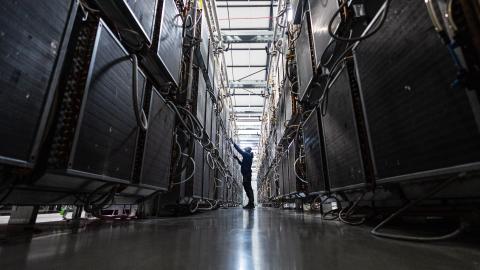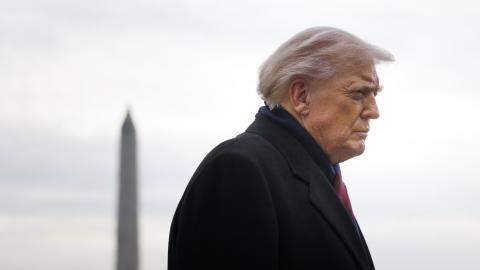The next round of diplomatic negotiations aimed at defusing the political crisis in Honduras will begin on Saturday in Costa Rica. The mediator of these negotiations, Costa Rican president Oscar Arias, has requested that ousted Honduran leader Manuel Zelaya show patience while the talks move forward. But on Monday, Zelaya delivered "an ultimatum" to the new Honduran government: If he is not restored to the presidential palace after this weekend's meeting, "the mediation effort will be considered failed and other measures will be taken." A State Department spokesman responded by affirming U.S. support for the Costa Rican talks, saying, "We just have to give time for this process to work."
Zelaya is trying to bully Honduran and Latin American officials by raising the possibility of a rebellion. His cheerleaders include the likes of Hugo Chávez, Daniel Ortega, and the Castro brothers -- the hemisphere's leading symbols of anti-democratic radicalism. This crowd has no real interest in promoting democracy. Rather, it hopes to weaken democracy and spread radical, anti-U.S. populism. Chávez has denounced the Costa Rican negotiations and harshly criticized President Obama.
Before his removal, Zelaya had embraced the Chávez gang and brought Honduras into the "Bolivarian Alternative for the Americas," a regional group led by Venezuela. When Zelaya was forced out, Chávez and Ortega lost their only true ideological ally in Central America. That's why they are so eager to see him restored to the presidency.
Those working to secure a just and lasting settlement to the Honduran crisis should not let themselves be bullied or intimidated. It is critically important that democratic governments in Latin America and elsewhere continue to support peaceful diplomacy. Such diplomacy should have been encouraged and spearheaded by the Organization of American States (OAS), which is supposedly the preeminent forum for democratic cooperation in the Western Hemisphere. Yet to its great shame, the OAS abdicated its moral authority and rejected a diplomatic solution to the Honduran crisis. Instead, OAS secretary-general José Miguel Insulza demanded that Zelaya immediately be reinstalled as president or else they would be kicked out of the OAS. When the Hondurans refused to comply, they were suspended.
Under Insulza's erratic and politicized leadership, the OAS has pursued a highly ideological agenda and lost sight of its original raison d'être. The organization has expended huge amounts of energy to lift a 47-year-old ban on Cuban membership, yet it has done very little to protest the creation of a dictatorship in Venezuela. Insulza's response to the Honduran crisis revealed his double standard: After staying silent on Hugo Chávez, he flew into a rage when Honduran authorities acted to defend their democracy from a power-hungry president who was willing to break the law and trample the democratic process. The OAS chief blasted Zelaya's removal as an "old-fashioned coup."
That phrase is deeply misleading. Let's review the basic facts: President Zelaya tried to hold a dubious "referendum" on constitutional reform, which was part of a broader, Chávez-style power grab. (Venezuela supplied the ballots.) The Honduran Supreme Court declared the sham referendum illegal. Zelaya defied its ruling and launched a coup against democracy. The Supreme Court ordered the army to arrest him. After Zelaya was expelled from the presidency, his removal was approved by the Supreme Court, the Congress, the Electoral Tribunal, the attorney general, and the national prosecutor. The military's involvement in Zelaya's ouster was regrettable, but Honduran authorities were clearly motivated by a desire to preserve their democratic institutions and protect their constitution. Moreover, since Zelaya was exiled, the army has stayed out of the political process and a civilian government has taken power.
It is completely unrealistic to think that Zelaya could govern effectively if he were reinstalled as president. In any case, the new Honduran administration, led by interim president Roberto Micheletti, has categorically rejected Zelaya's return to the presidency. On the other hand, Micheletti has expressed a readiness to meet with Zelaya and hold early elections. (Presidential and parliamentary elections are currently scheduled for November.) He recently told Reuters that he would be willing to grant Zelaya an amnesty for his crimes, provided that the former leader "comes peacefully first to appear before the authorities." Micheletti should be applauded for demonstrating such flexibility.
By contrast, Zelaya is proving utterly intractable and refusing to compromise. He wants the presidency; nothing less will suffice. If he follows through on his threat to take "other measures" against the Honduran government, the beleaguered Central American country could be in for violent turmoil. Let's hope that cooler heads prevail, and that diplomacy is given a chance to succeed.
















